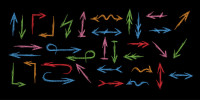On Writing A Mystery That Defies Rationality
crimereads.com – Tuesday January 10, 2023

When I started writing my debut novel, Liar, Dreamer, Thief, I knew two things. First, I wanted a mystery to form the novel’s core. Second, it was important to me that at least some of the main revelations—which, in a mystery, often form touchstones for the character’s internal journey—not be entirely rational.
The urge for this probably came from not being able to relate to the average mystery protagonist: an intellectually brilliant, cool cucumber whose only weakness usually takes one of two forms: a chemical addiction, like House and his pain pills, or a personality too abrasive to form close relationships (save whoever the Watson stand-in is). Either way, a sleuth’s fatal flaws (I mean flaws as written, because both of these issues can actually destroy you as a human being) can’t impair their ability to make rational deductions, because in the mystery novel, reason—of both the deductive and inductive varieties—is king.
And while I’m sure there are real people out there who embody these traits, with my protagonist, I wanted to dig my teeth into someone messy, someone whose logic was flawed and whose emotional world was more important than their intellectual one. I also wanted a plot in which the engine forward sometimes escaped rational explanation—and where the who, what, and how were only part of the reader’s experience.
To read the full article on crimereads.com, click here




 Ross MacKenzie's whirlwind guide to writing mystery
Ross MacKenzie's whirlwind guide to writing mystery 9 tips for writing your own murder mystery, from a published author
9 tips for writing your own murder mystery, from a published author Murder mystery author Jane Harper has six tips for writing a bestselling novel
Murder mystery author Jane Harper has six tips for writing a bestselling novel Removing the Mystery From Mystery Writing: 13 Tricks Used by Acclaimed Novelists
Removing the Mystery From Mystery Writing: 13 Tricks Used by Acclaimed Novelists One Neat Trick to Writing Great Mystery Plots
One Neat Trick to Writing Great Mystery Plots Peng Shepherd On Writing A Choose-You-Own-Adventure Speculative Mystery
Peng Shepherd On Writing A Choose-You-Own-Adventure Speculative Mystery Writing a Romance versus Writing a Mystery
Writing a Romance versus Writing a Mystery Want to know the secret to writing a great crime novel?
Want to know the secret to writing a great crime novel? Jeffery Deaver interview: The secrets of writing a bestseller
Jeffery Deaver interview: The secrets of writing a bestseller Author Bernardine Evaristo on her award wins, activism, and what inspires her writing
Author Bernardine Evaristo on her award wins, activism, and what inspires her writing What Is Tone in Writing (& Why Is It Important)?
What Is Tone in Writing (& Why Is It Important)? The Harried Mystery Hero(ine) Or, How to Write a Mystery (Easy)
The Harried Mystery Hero(ine) Or, How to Write a Mystery (Easy) Chicagoan Charlie Donlea on Writing Best-Selling Mysteries
Chicagoan Charlie Donlea on Writing Best-Selling Mysteries What Happens When a Journalist and a Psychotherapist Write a Mystery Together?
What Happens When a Journalist and a Psychotherapist Write a Mystery Together? What we learned about... non-fiction writing
What we learned about... non-fiction writing How Mindfulness Can Transform Your Writing Life
How Mindfulness Can Transform Your Writing Life Pete Kalu’s top tips for writing non-cliched multicultural characters
Pete Kalu’s top tips for writing non-cliched multicultural characters New Literary Agent Listing: Gabrielle Demblon
New Literary Agent Listing: Gabrielle Demblon Reading Force is delighted to welcome submissions from adults, children and young people to its 2025 Memoir Writing Competition
Reading Force is delighted to welcome submissions from adults, children and young people to its 2025 Memoir Writing Competition New Publisher Listing: Cicada
New Publisher Listing: Cicada Calling all aspiring authors! Here's your chance to win a one-to-one session with a literary agent - plus £1,500
Calling all aspiring authors! Here's your chance to win a one-to-one session with a literary agent - plus £1,500 New prize for translated poetry aims to tap into boom for international-language writing
New prize for translated poetry aims to tap into boom for international-language writing New Literary Agent Listing: Kaylyn Aldridge
New Literary Agent Listing: Kaylyn Aldridge TikTok parent ByteDance is shutting down its short-lived book publisher
TikTok parent ByteDance is shutting down its short-lived book publisher New Magazine Listing: And Other Poems
New Magazine Listing: And Other Poems New Literary Agent Listing: Helen Lane
New Literary Agent Listing: Helen Lane UK audiobook revenue up by almost a third last year
UK audiobook revenue up by almost a third last year New Publisher Listing: Radio Society of Great Britain
New Publisher Listing: Radio Society of Great Britain New Magazine Listing: Emerge Literary Journal
New Magazine Listing: Emerge Literary Journal New Literary Agency Listing: Ghosh Literary
New Literary Agency Listing: Ghosh Literary New Publisher Listing: Hardie Grant
New Publisher Listing: Hardie Grant
